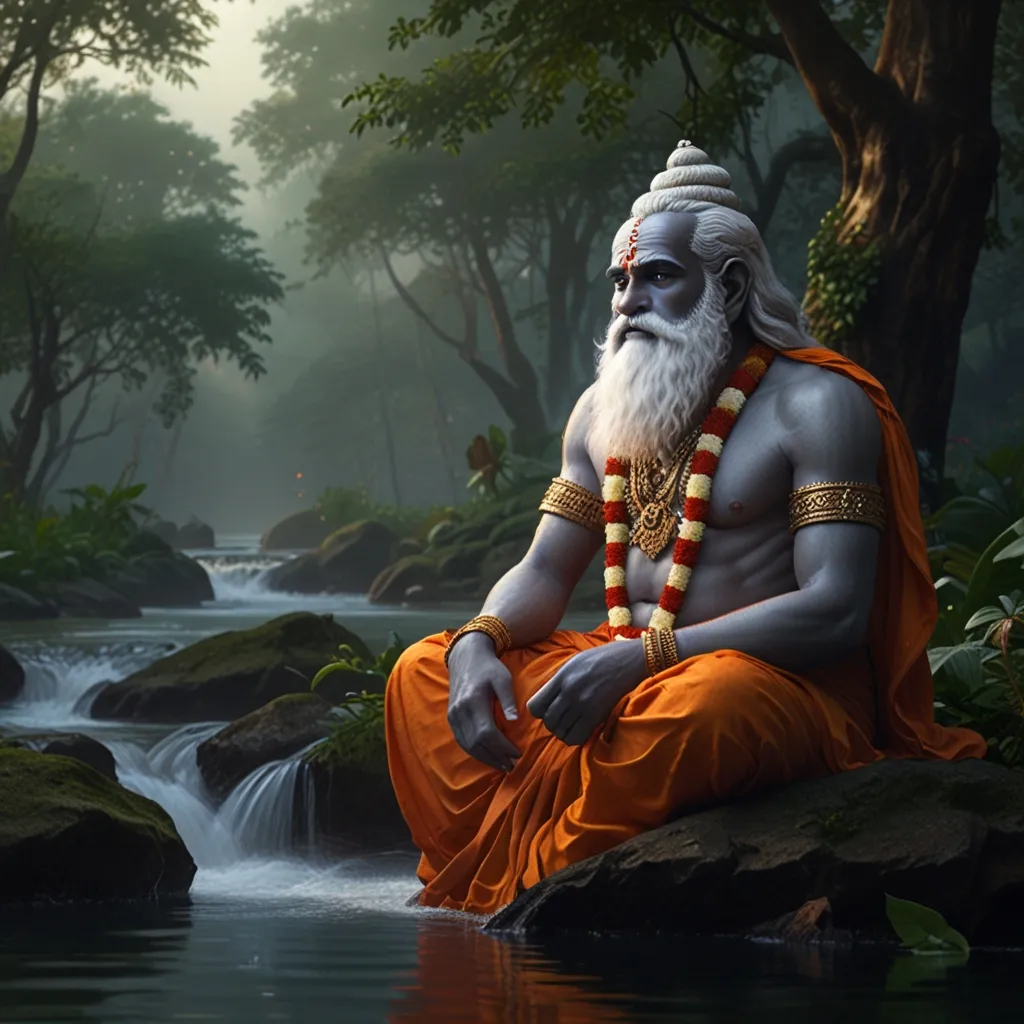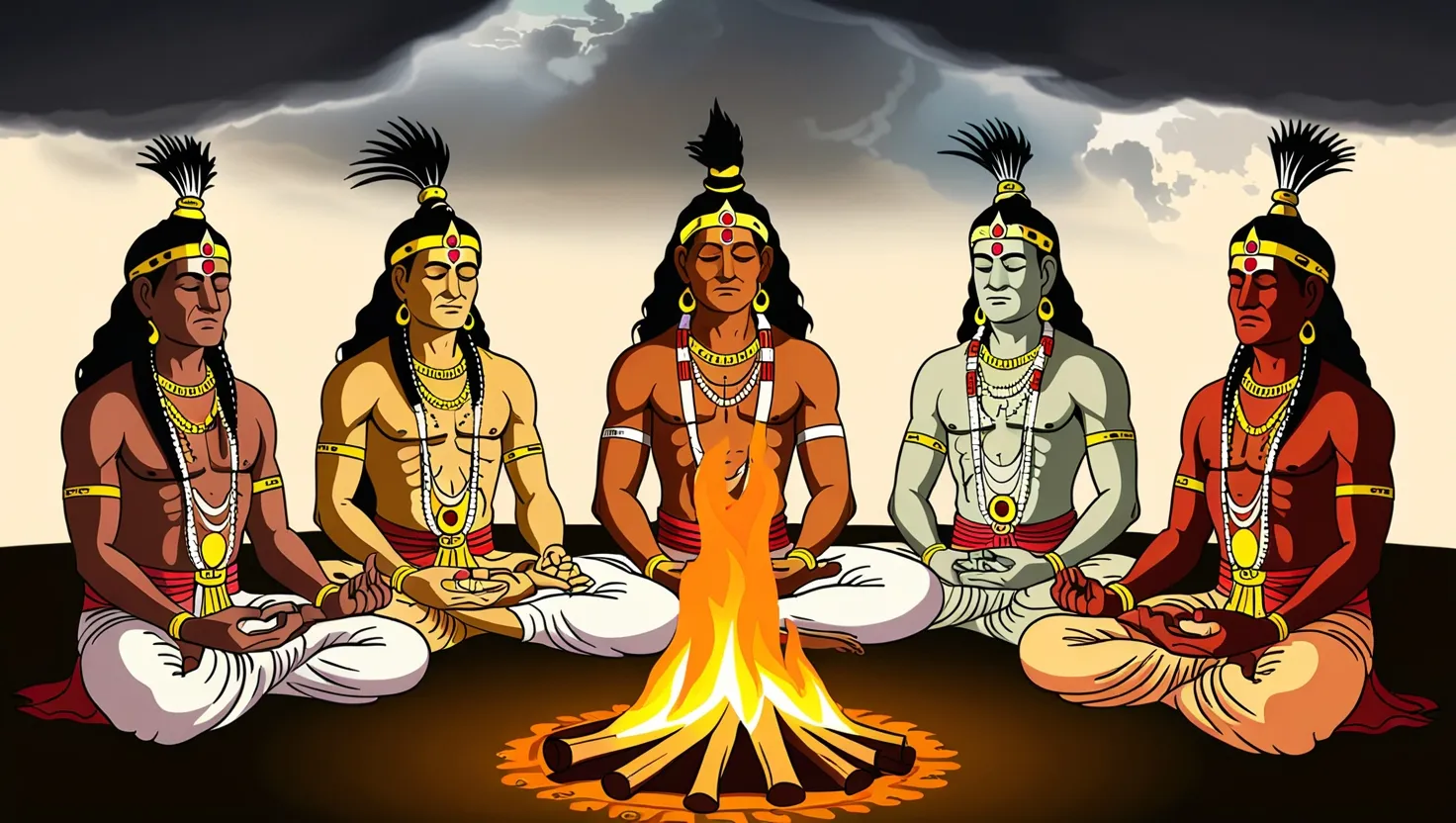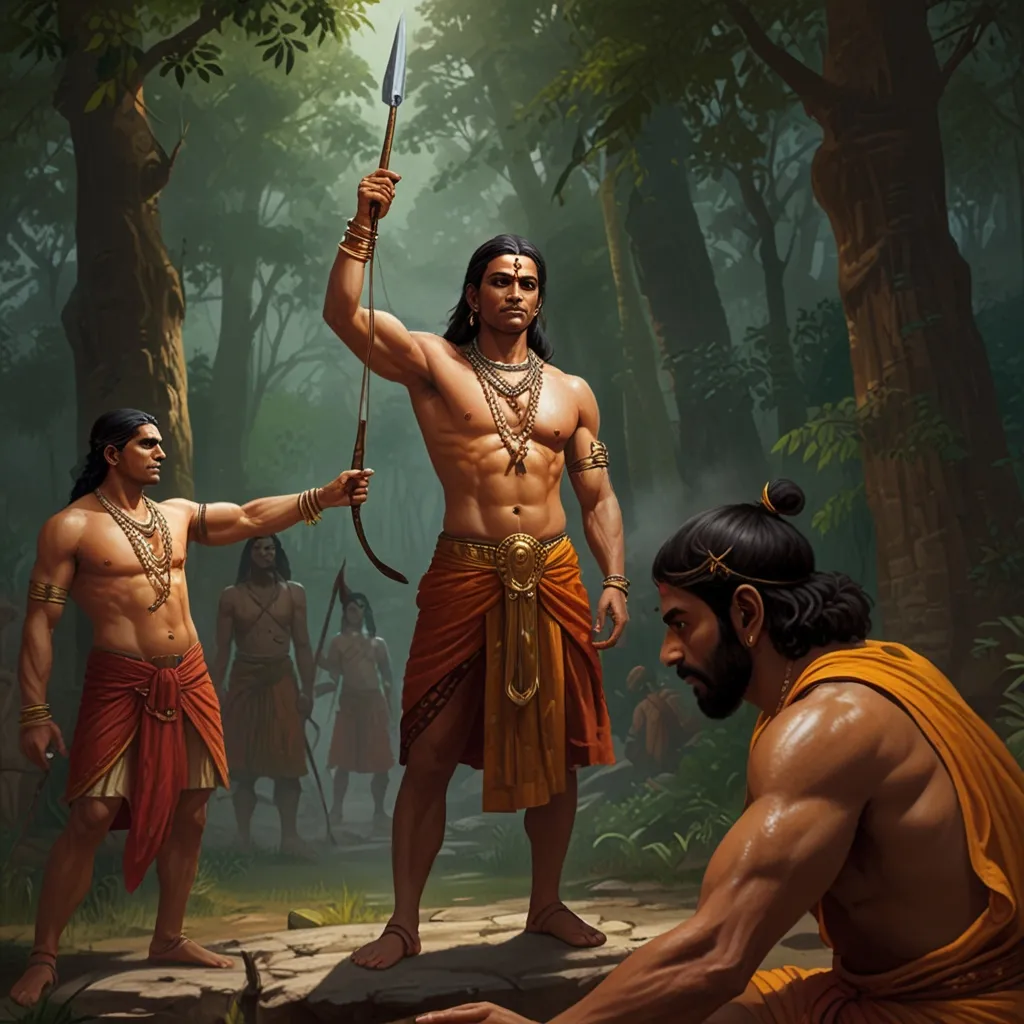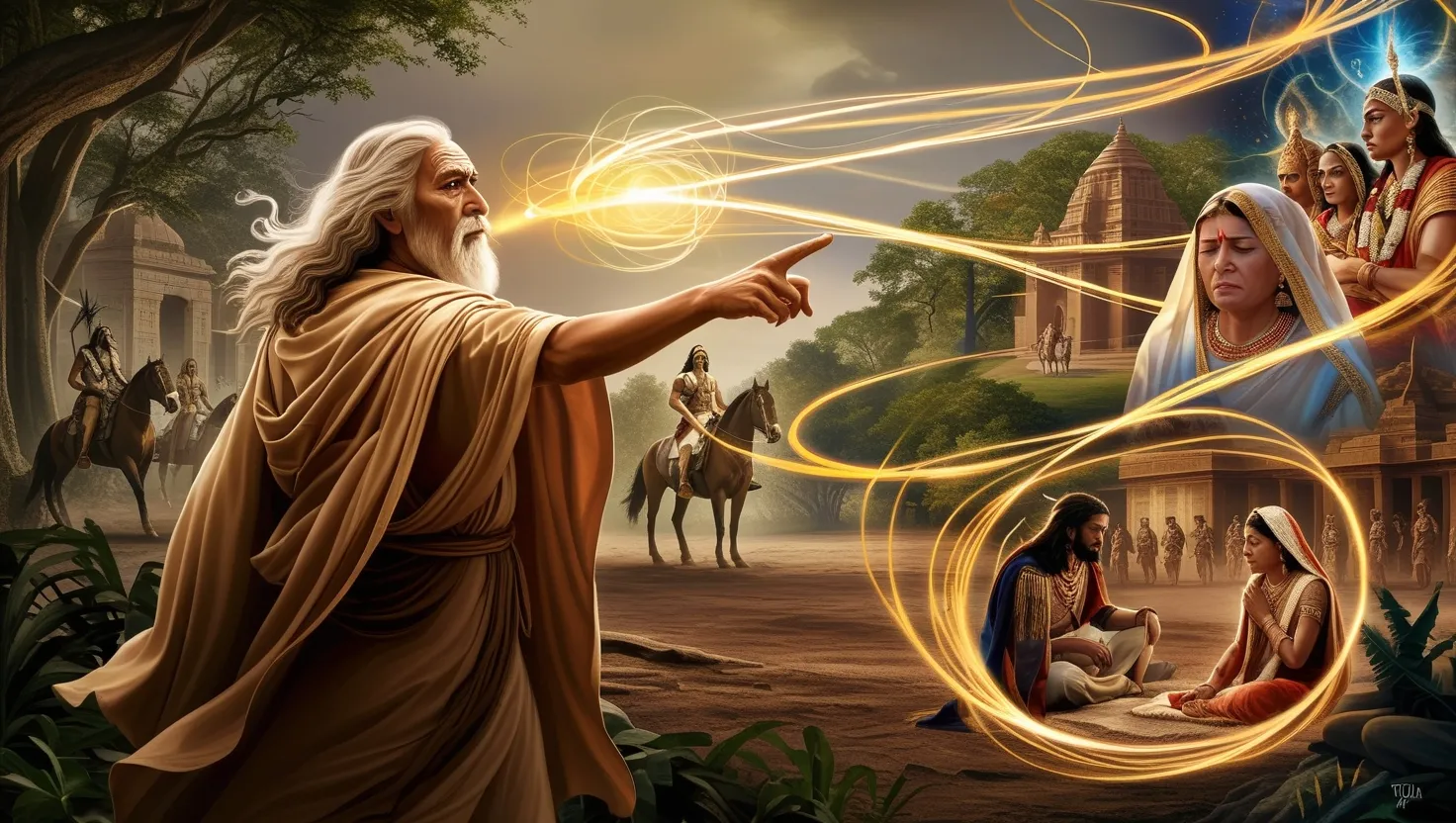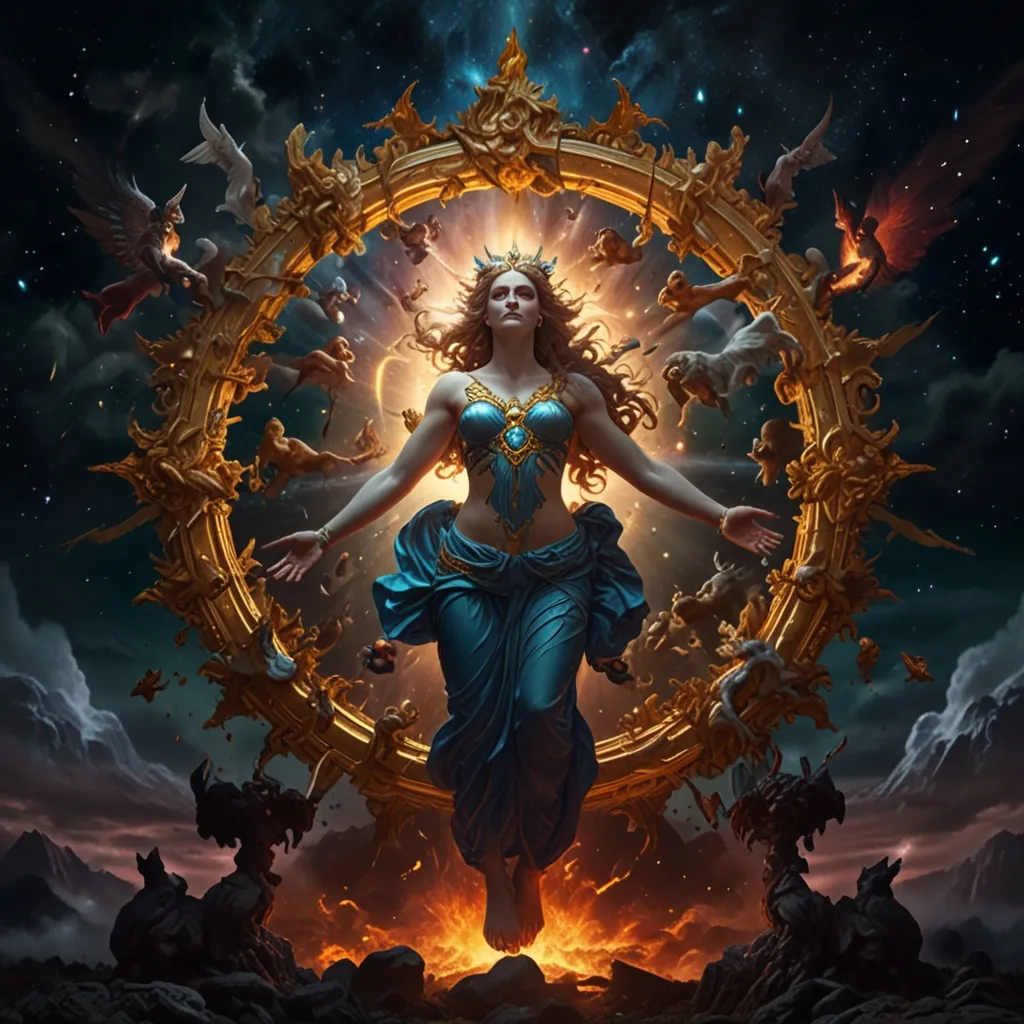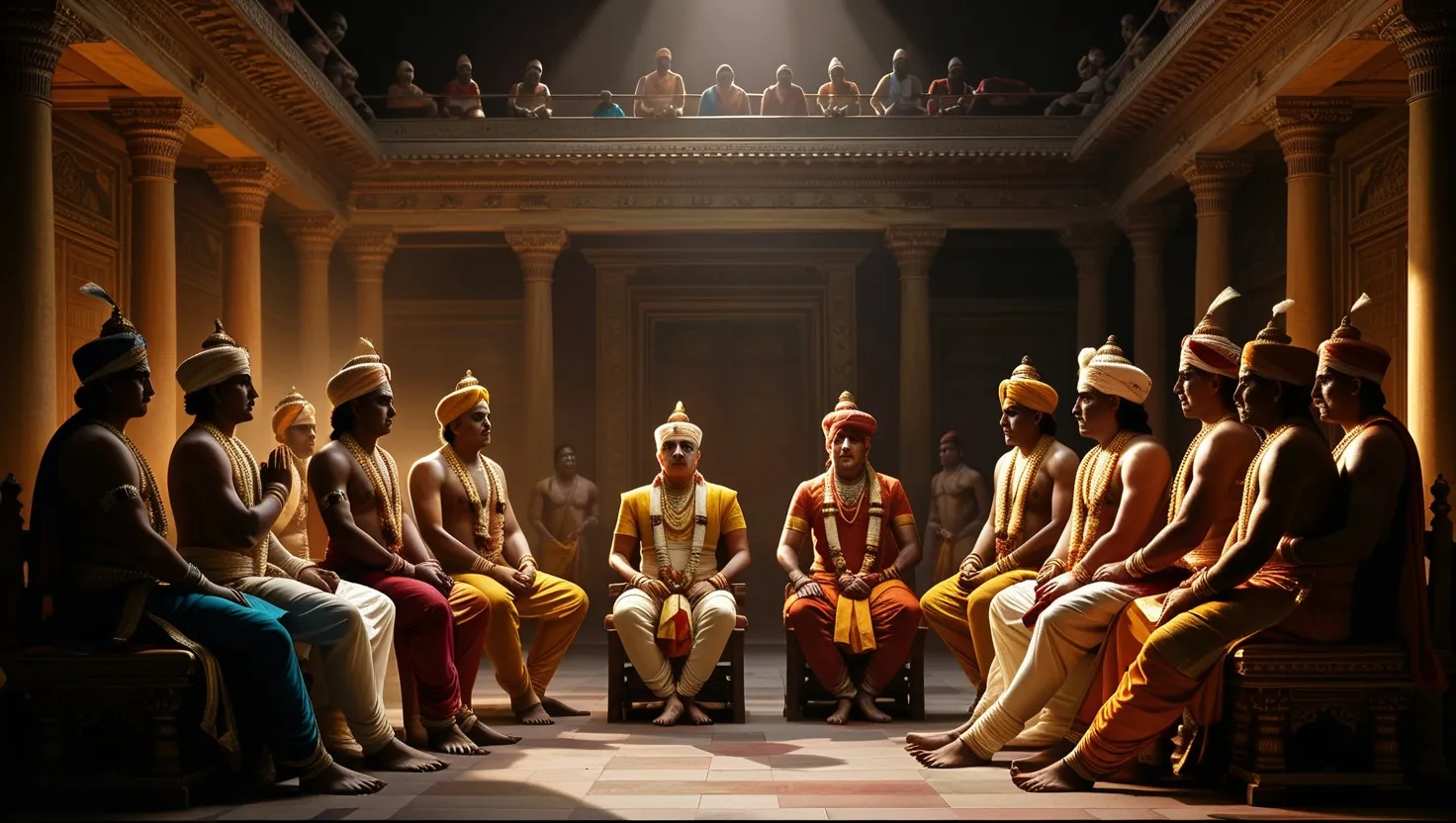Once upon a time, in the mystical tapestry of ancient Hindu mythology, the story of Vyasa unfolds with a swirl of intrigue, divine encounters, and destiny’s grand orchestration. Imagine a young woman named Satyavati, living a humble life as the daughter of a fisherman, ferrying passengers across the river Yamuna.
One fine day, destiny knocked on Satyavati’s boat. While busy with her regular ferrying, she met Parashara, a wandering sage on a mission to attend a sacred ritual. He was in a rush and needed to cross the river quickly. With her boat being the only ticket across, she was his only hope.
Parashara wasn’t just seeking a ride across the river; he was enchanted by Satyavati’s charm and grace. He yearned to have a child with her. Naturally, Satyavati was hesitant, worrying about her reputation. Folks could start gossiping if they saw them together. So, Parashara, being the sage he was, whipped up a secret hideaway on a nearby island, enveloping it in thick fog. This mysterious spot provided them the privacy they needed.
Amidst this enchanted setting, Satyavati conceived and instantly gave birth to a son. They named him Krishna Dvaipayana, meaning “the dark one born on an island,” marking both his complexion and birthplace. Unlike ordinary babies, he grew into an adult right after birth, signaling his unique nature.
Before bidding goodbye, Parashara restored Satyavati’s virginity and gifted her an enchanting, everlasting fragrance. He promised their son would always come to her aid whenever she needed him. With those parting words, he vanished, leaving Satyavati to continue her life as though nothing had changed.
Keeping this miraculous event to herself, Satyavati later married King Shantanu of Hastinapura and bore two sons, Chitrangada and Vichitravirya. Sadly, both sons perished young without offspring, leading to a royal family crisis.
In a twist of fate, Satyavati turned to her firstborn, Vyasa. She unveiled her secret past and sought his help. According to an ancient practice called Niyoga, a chosen man could father children with the widows of a deceased relative. Vyasa agreed to his mother’s request and impregnated the widows of his half-brothers, Ambika and Ambalika.
But things were far from smooth. Ambika, terrified upon seeing Vyasa, closed her eyes and gave birth to a blind child, Dhritarashtra. Ambalika, who turned pale in Vyasa’s presence, bore Pandu, a pale child. Realizing the shortcomings, Satyavati asked Vyasa to give Ambika another chance. But Ambika, too frightened, sent her maid instead, leading to the birth of a healthy child named Vidura.
Vyasa’s story isn’t just confined to his birth and lineage. He’s celebrated for composing the epic Mahabharata, a treasure trove of legendary events, philosophy, and semi-historical tales of ancient India. The Mahabharata is crafted as a dialogue between the blind Dhritarashtra and the sage Sanjaya, narrating the grand events of the Kurukshetra War.
Vyasa’s literary contributions don’t end there. He beautifully compiled the Vedas into four separate texts: Rigveda, Samaveda, Yajurveda, and Atharvaveda, earning him the name Veda Vyasa, meaning “the splitter of the Vedas.” His work made these sacred texts more accessible to people.
Besides the Vedas, Vyasa penned down the Puranas, detailing various aspects of Hindu mythology and philosophy. He also authored the Brahma Sutra, laying down the foundational text of Vedantic philosophy. These masterpieces have profoundly influenced Hindu thought and culture.
Vyasa’s devotion to the Vedas and his mission to preserve and share Vedic knowledge was deep-rooted. Spending years in meditation and study, he mastered various branches of knowledge. Such was his dedication that he became one of the eight immortals in Hindu mythology, known as the Chiranjeevin.
The legend of Vyasa dictating the Mahabharata to Ganesha, the elephant-headed god, is riveting. Ganesha agreed to be Vyasa’s scribe on the condition that Vyasa recite the verses without pausing. Vyasa, clever as he was, made Ganesha promise to understand each verse before writing it down, creating a race between Vyasa’s rapid recitation and Ganesha’s swift writing. At one point, running out of ink, Ganesha broke one of his tusks to continue writing, ensuring the epic reached completion.
Beyond his literary legacies, Vyasa is cherished as a sage who often appeared in the Mahabharata to offer wisdom and guidance. His teachings highlight the four goals of human life, known as the Purusharthas: righteousness, wealth, enjoyment, and salvation.
Vyasa’s birth and life tale is a mesmerizing blend of destiny’s strokes and divine interventions, marking the journey of an extraordinary soul. From his humble origin as the son of a fisherwoman and a wandering sage to his monumental role as the compiler of the Vedas and the author of the Mahabharata, Vyasa’s saga is one of devotion, wisdom, and unparalleled literary genius. His works transcend time, continually inspiring and guiding generations, cementing his status as one of the most revered figures in Hindu lore.
